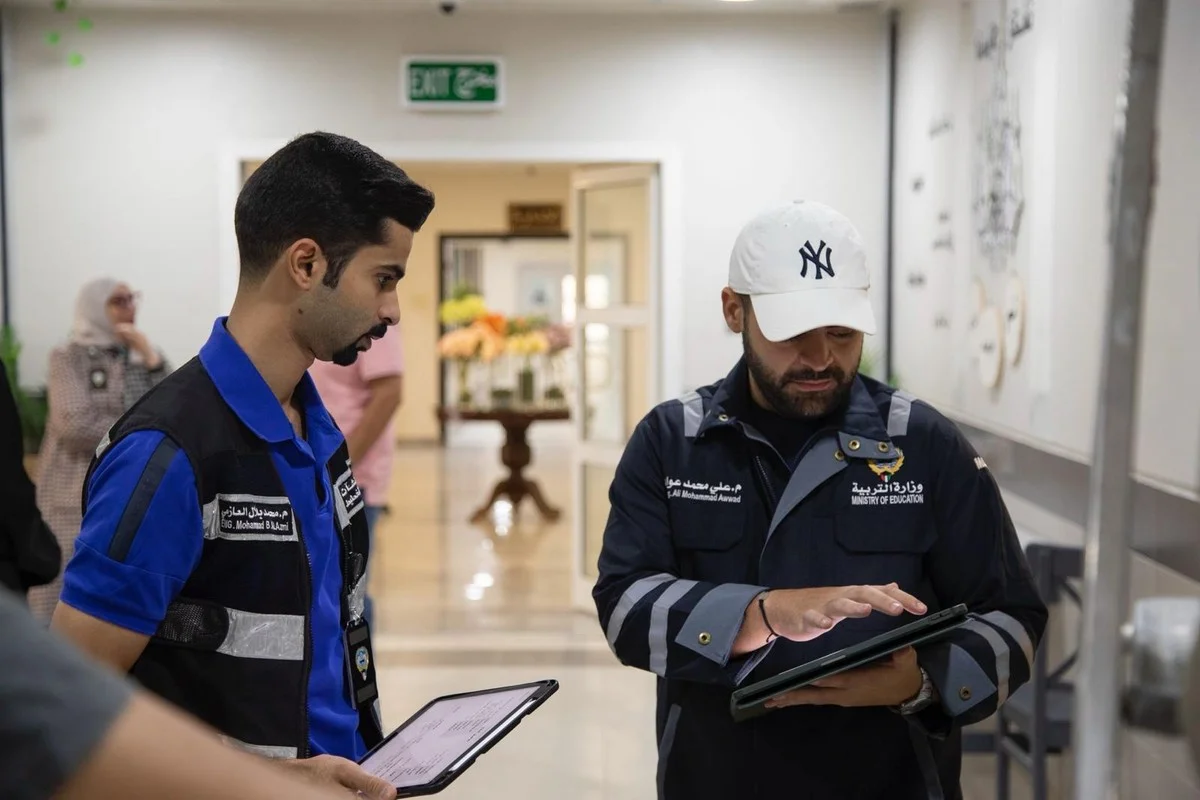19/08/2025
19/08/2025

KUWAIT CITY, Aug 19: Kuwait’s Ministry of Education said Tuesday it is intensifying field visits to schools nationwide to ensure readiness ahead of the new academic year, aiming to provide a safe and organized environment that supports a stable and successful start.
In a statement, the ministry said it has restructured field teams responsible for maintenance and equipment to improve performance efficiency and maximize the use of financial and human resources across all schools.
Engineer Mohammad Al-Azmi, from the Engineering Affairs Department in the Capital Educational District under the Educational Facilities Sector, said the ministry has launched the Balagh program, an integrated electronic platform for managing maintenance operations, as part of the government’s digital transformation plan. He described the platform as one of the most prominent digital initiatives in the school maintenance sector.
Al-Azmi said a field survey covered 165 schools in the Capital Educational District, generating numerous maintenance reports. Many of the issues have been resolved, while work on the remaining cases is being carried out under a specific timetable to ensure readiness before the school year begins.
Engineer Ali Al-Awad, also from the Capital Educational District, said the Balagh platform represents a qualitative shift in handling maintenance work, enabling schools to report faults directly and efficiently through an easy-to-use digital interface. He noted the system shortens the response cycle from report registration to closure after implementation, ensuring rapid resolution of issues and boosting school preparedness.
In the same context, Engineer Hawraa Al-Ballam, from the Capital District’s Engineering Affairs Department, said reports are handled according to defined standards and priorities to prevent any disruptions at the start of the academic year.
Al-Ballam explained that reports are classified into civil, mechanical, and electrical works. She stressed that technical teams focused on projects enhancing hygiene and public health standards to protect school buildings and preserve their structural integrity.
She said mechanical works included cleaning filters, washing air-conditioning systems, repairing suspension units, and replacing damaged parts, while preventive maintenance continues on central air-conditioning systems, units, and refrigerators.
Electrical works, she added, involved repairing distribution panels, replacing damaged breakers, and addressing lighting issues. These tasks, she noted, were carried out under an effective timetable given their importance in creating a comfortable educational environment and ensuring the safety of students and staff.


